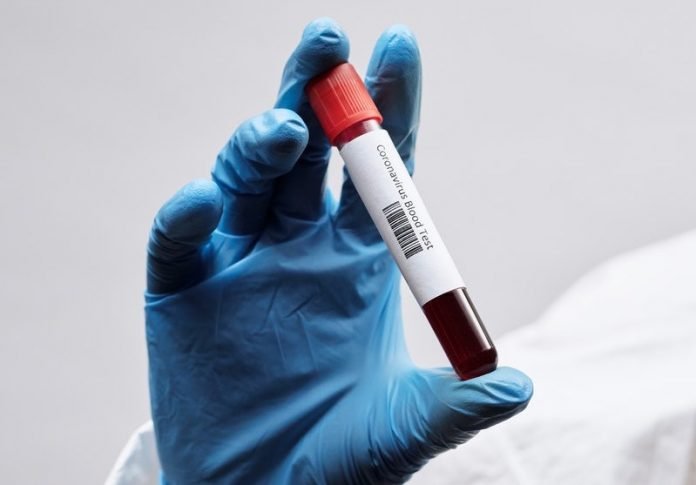
In a new study from Stanford Medicine, researchers found blood drawn from patients shortly after they were infected with SARS-CoV-2, the virus that causes COVID-19, may indicate who is most likely to land in the hospital.
They found that antibodies elicited by an mRNA vaccine—in this case, Pfizer’s—differ in important, beneficial ways from those in people infected with SARS-CoV-2 who later progress to severe symptoms.
In the study, the team collected blood samples from 178 adults who had tested positive for COVID-19 upon visiting a Stanford Health Care hospital or clinic.
At the time of testing, these individuals’ symptoms were universally mild. As time passed, 15 participants developed symptoms bad enough to land them in the emergency department.
The team analyzed the antibodies in blood samples taken from study participants on the day of their coronavirus test and 28 days later.
They found some notable differences between those who developed severe symptoms and those who didn’t.
The researchers found that while many participants whose symptoms remained mild had healthy levels of neutralizing antibodies to SARS-CoV-2 from the get-go, participants who wound up hospitalized had initially minimal or undetectable levels of neutralizing antibodies, although their immune cells started pumping them out later in the infection’s course.
In addition, in participants who progressed to severe COVID-19, sugar chains on certain antibodies targeting SARS-CoV2 were deficient in a variety of sugar called fucose.
This deficiency was evident on the day these “progressors” first tested positive. So, it wasn’t a result of severe infection but preceded it.
Furthermore, immune cells in these patients featured inordinately high levels of receptors for these fucose-lacking types of antibodies. Such receptors, called CD16a, are known to boost immune cells’ inflammatory activity.
The scientists also studied the antibodies elicited in 29 adults after they received the first and second doses of the Pfizer mRNA vaccine.
They found two vaccine doses led to overall high neutralizing-antibody levels. In addition, antibody fucose content was high in the vaccinated and mildly symptomatic groups but low in the hospitalized individuals.
The team says the immunological factors the researchers have identified—a sluggish neutralizing-antibody response, deficient fucose levels on antibody-attached sugar chains, and hyperabundant receptors for fucose-deficient antibodies—were each, on their own, modestly predictive of COVID-19 severity.
But taken together, they allowed the scientists to guess the disease’s course with an accuracy of about 80%.
If you care about Covid, please read studies that slow walkers four times more likely to die from COVID-19, and this existing drug could prevent COVID death.
For more information about health, please see recent studies about people who can fight COVID-19 much better than others, and results showing green tea may protect your body as a vaccine.
The study is published in Science Translational Medicine. One author of the study is Taia Wang, MD, Ph.D.
Copyright © 2022 Knowridge Science Report. All rights reserved.




